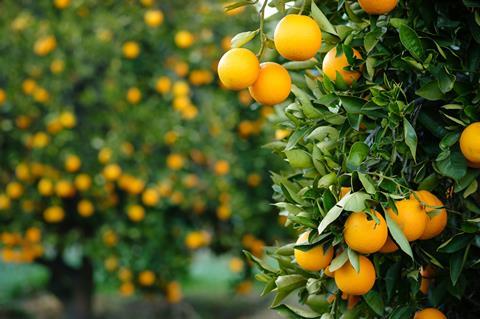With the country’s citrus growers set to decide on their future market supply, exports to the EU remain up in the air
The Citrus Growers Association of South Africa (CGA) has called for urgent political intervention after a stalemate developed between the South African government and the European Union in the World Trade Organisation dispute over the EU’s new False Coddling Moth (FCM) regime.

It has warned that if the issue is not resolved before the beginning of the 2023 export season, growers could face losses worth hundreds of millions of rand which would put the future sustainability of the industry at risk.
A letter has been sent to South Africa’s minister of trade, industry and competition, Ebrahim Patel, requesting that he urgently calls for the establishment of a WTO panel to adjudicate on the FCM regime and how it relates to orange imports.
With just over two months until the start of the new export season and the EU representing the largest of all South Africa’s citrus export markets, the CGA says it is extremely worried that no progress has been made to resolve the issue yet.
“The CGA’s call to minister Patel follows a stalemate having been reached between the South African government and the European Union (EU) after the DTIC lodged a dispute at the WTO in July last year, with consultations that have taken place since then not making any progress,” said CGA chief executive Justin Chadwick.
“The CGA is unmoved in its view that the cold treatment prescribed within the new regulations is contrary to scientific evidence, making it an arbitrary and unnecessarily trade restrictive measure and accordingly contravenes international requirements for such phytosanitary trade regulations,” he continued.
”Its untimely introduction has already added over R200m in additional costs to the citrus industry in 2022, with the expected financial consequences set to spiral even further out of control in 2023.”
A recent study conducted by the Bureau for Food and Agricultural Policy (BFAP) estimated that, should EU authorities continue to enforce the new regulation, additional costs and loss of income would amount to more than R500m in 2023, while an investment in cold storage technology and capacity of nearly R1.4bn would be required to enable full compliance.
“This poses a major threat to the future sustainability and profitability of the industry that sustains more than 140 000 jobs and brings in R30 billion in export revenue annually,” Chadwick outlined.
South Africa’s government has, Chadwick said, presented clear evidence during the consultation process that the country’s existing and stringent FCM risk management system already ensures that 99.9 per cent of oranges entering the EU are pest free.
Despite only two FCM interceptions detected in the over 350,000 tonnes of oranges shipped to the region in 2022, there has been no progress when it comes to reaching mutually agreed concessions on the new regulations.
“We understand the matter was also raised during last week’s high-level engagements between senior EU and South African government officials with no positive outcome,” he said. ”It is therefore clear that political intervention at a ministerial level is required to ensure the major threat that the new regulations pose to the upcoming 2023 citrus season is resolved as a matter of priority.
“With the export of oranges starting in May, we still have a short window to rescue this serious situation,” Chadwick added. “We have therefore written to minister Patel with an urgent appeal to call for the establishment of a WTO Panel to adjudicate on the matter.”
The CGA said a WTO Panel was the only option to put a stop to what was clearly ”nothing more than a politically motivated move by unions within the Spanish citrus industry to decimate the businesses of thousands of South African growers and the livelihoods they support”.
“The local industry remains committed to working with all government and industry stakeholders to address this issue with the urgency it requires and is grateful for support received from the DTIC and DALRRD to date.”



